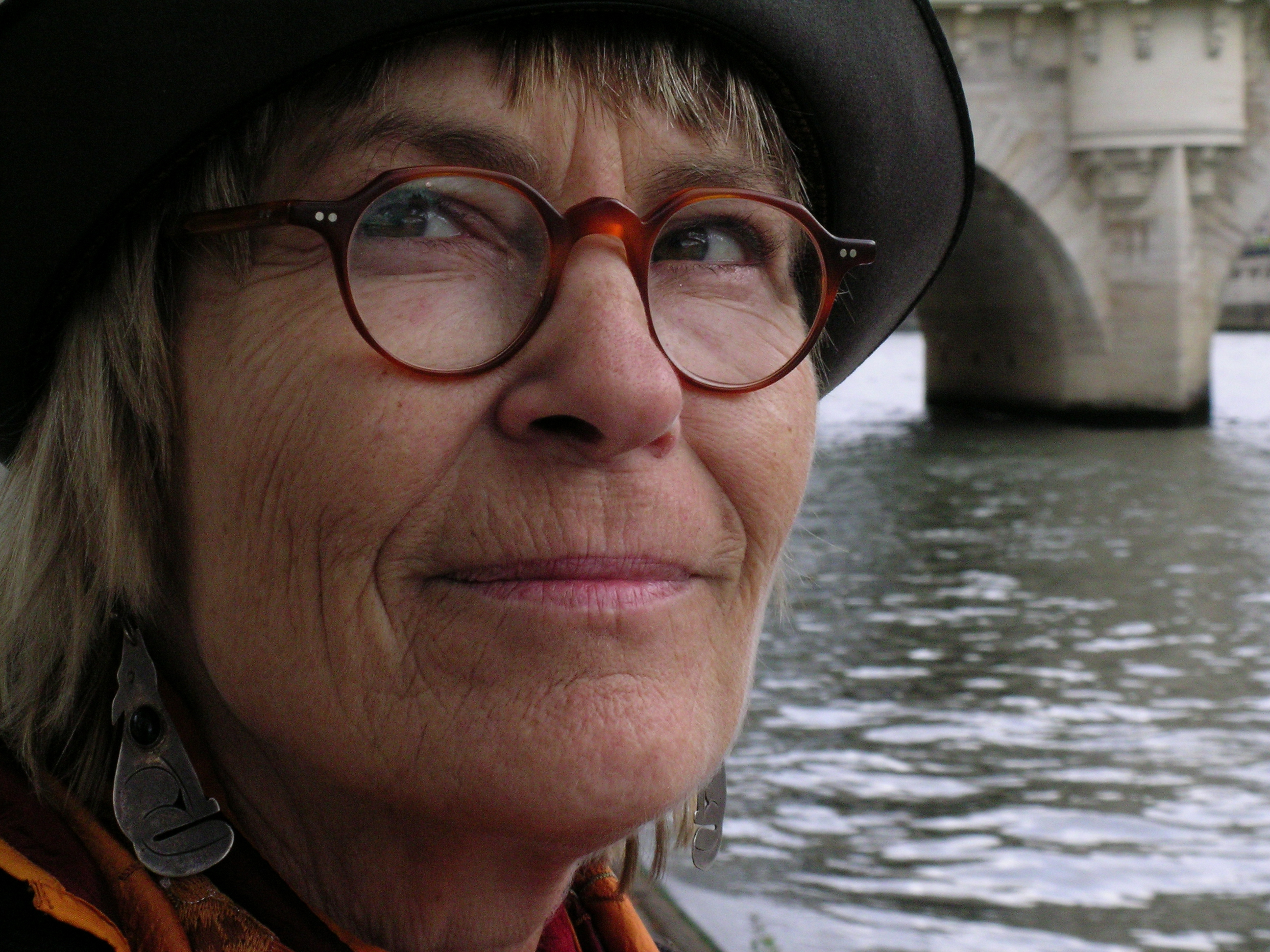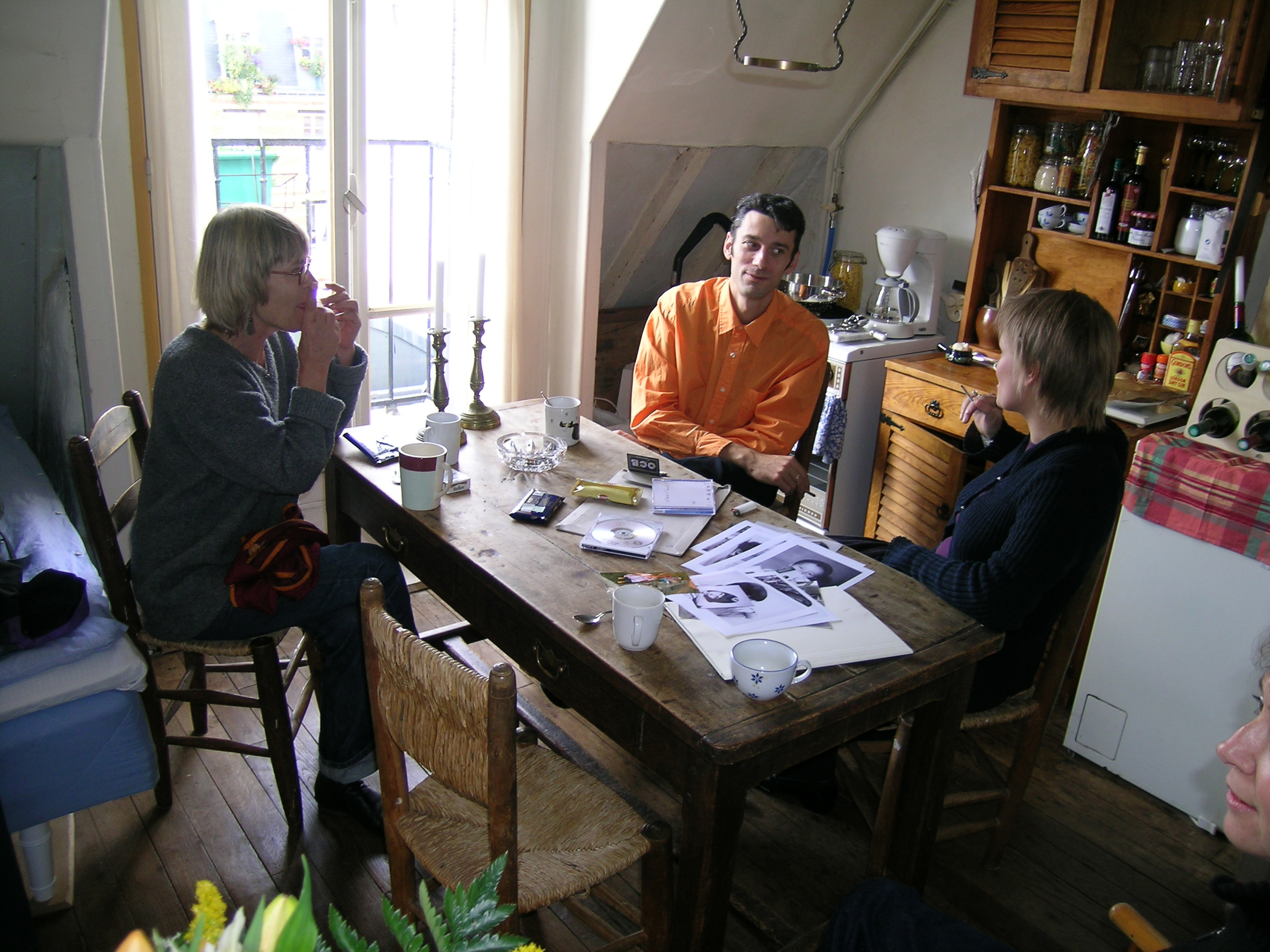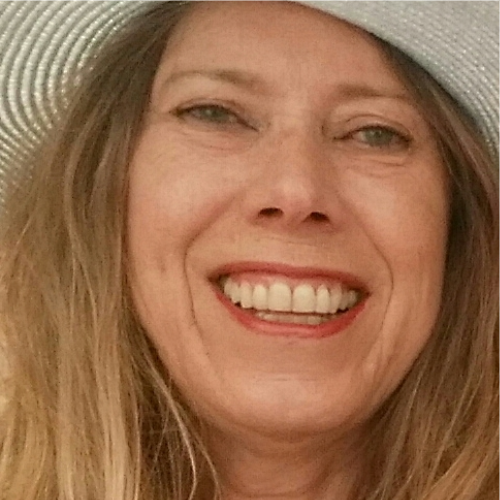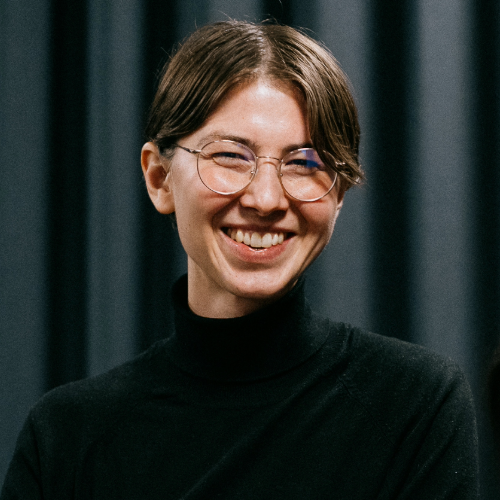DE 2006 | Director and Sound: Quinka Stoehr | Camera: Volker Tittel (BVK) | Editing: Margot Neubert-Marić | Editor: Katya Mader (ZDF/3Sat) | Production: StoehrMedien in Co-production mit ZDF/3Sat | Colour | 35mm | 84 min | german OV | Stiftung Deutsche Kinemathek
[A] multi-layered, moving portrait of the filmmaker and winner of multiple Grimme Awards Gisela Tuchtenhagen, one of the first German camerawomen of the 1970s, who has left a sustained mark on the documentary film genre ever since. This cinematic journey takes us to key settings from her past and recounts her dark childhood days in a reformatory in the late 1950s and her wild times in Paris, where she fled at the ripe age of 16 after several failed attempts to escape her locked-down home. Gisela Tuchtenhagen took the inner revolt from back then, the urge to set something on fire, and converted it into positive energy. "Finding a means of expression in photography and film enabled me to survive," as she puts it. Through flashbacks, diary entries, film quotations and scenes from the past, a complex picture emerges of a worldly-wise woman whose sensitive artistic work is inextricably linked with her biography. (Arsenal – Institute for Film and Video Art, 2006)


| Acronyms | |
|---|---|
| amer. | American English |
| b/w | Black and white |
| OV | Original version |
| SUB | Subtitles |
| +SUB | electronic live subtitling (below the image) |
| INT | Intertitles |
| Countries | |
|---|---|
| AT | Austria |
| FRG | Federal Republic of Germany (historic) |
| BLR | Belarus |
| DE | Germany |
| CAN | Canada |
| GDR | German Democratic Republic (historic) |
| EGY | Egypt |
| FR | France |
| GB | Great Britain |
| URY | Uruguay |
| BRA | Brasil |
| SWE | Sweden |
| UKR | Ukraine |
| PL | Poland |
| IDN | Indonesia |
| PRT | Portugal |
| HRV | Croatia |
| ECU | Ecuador |
| HUN | Hungary |
| AUS | Australia |
| IT | Italy |
| MEX | Mexico |
| IND | India |
Followed by a conversation with Gisela Tuchtenhagen, Quinka Stoehr and Margot Neubert-Marić.
Moderated by Fiona Berg and Borjana Gaković
Born in 1943 in Pomerania, grew up in Schleswig-Holstein. 1966 photography apprenticeship, 1968-72 studies at the Berlin Film Academy dffb. There she studied and learned above all from documentary film director Klaus Wildenhahn, working with him for several years as editor, co-author, co-director and camerawoman. She made her own documentary films and taught at film schools. 1980-1983 training as a nurse, then return to her own film projects, camera work and collaborations with women. It was not all as smooth as it may sound in brief. In 1986 adoption of Christian and Alfredo. Gisela T. has been a member of the Academy of Arts since 1999. She continued to work as a camerawoman and documentary film director until 2021. The principles of Direct Cinema have always remained important to her.

1979 Co-founder of the Emergency Hotline Notruf f. vergewaltigte Frauen Kiel. Because of this work, I made one of the first documentary films on the subject of rape and Me Too: “Vergessen kann ich das nie” (Duisburger Filmwoche 1986) The film hit like a bomb and had more than 25,000 viewers. This encouraged me, after studying German and History, to study film at the HfbK in Hamburg. There I met, among others, Gisela Tuchtenhagen, who became my most important teacher in filmmaking. Numerous documentary films followed, among them: Virginia Grütter, D 1996; Ein anderes Land, D 1999; Zuneigung, D 2006; Klaus Wildenhahn – Direct, Public and Private, D 2010, among others. Many years of teaching at the Muthesius Kunsthochschule Kiel and at the Uni Flensburg. From 2011 onwards, numerous prizes for intercultural film and theatre projects with refugees and students, including the Schulpreis des Bundespräsidenten 2012, among other.

I have been working as a film editor since 1974. After completing my training at Bavaria-Film Munich and Studio Hamburg, I worked freelance for ZDF Hamburg, NDR, and subsequently for various film productions in the areas of feature film, television film, and documentary film. For 10 years, I taught the history of film editing and film montage at institutions including the Bremen Adult Education Center, the Hamburg Film School in Berlin, the Dortmund University of Applied Sciences, the Dresden University of Art (HfbK), the Muthesius School in Kiel, and at Tide TV. Between 2006 and 2023, I worked as a writer, director, sound engineer, and film editor together with Gisela Tuchtenhagen on four Low German documentaries.

Fiona Berg works as a film scholar and curator, as an author, and as editor of the magazine Filmblatt. She has worked for the Duisburg Film Week, the Zeughauskino cinema and the Free University of Berlin, among others. She is part of the feminist elsewheres group, whose first joint project culminated in a festival at the Arsenal cinema and the DFFB in 2023. Since then, the group has presented its research on feminist film history in programmes and publications. Their research interests focus on the infrastructures of feminist film work and collaborative forms of film education and activism.







